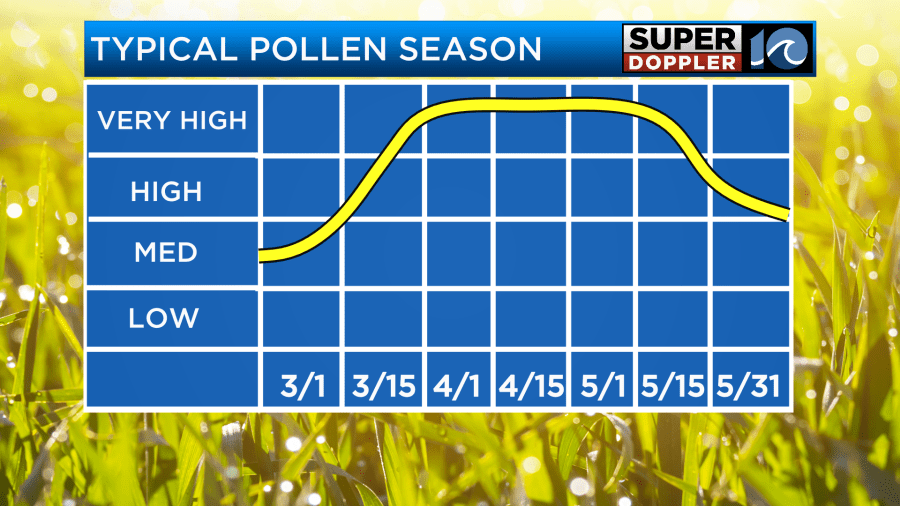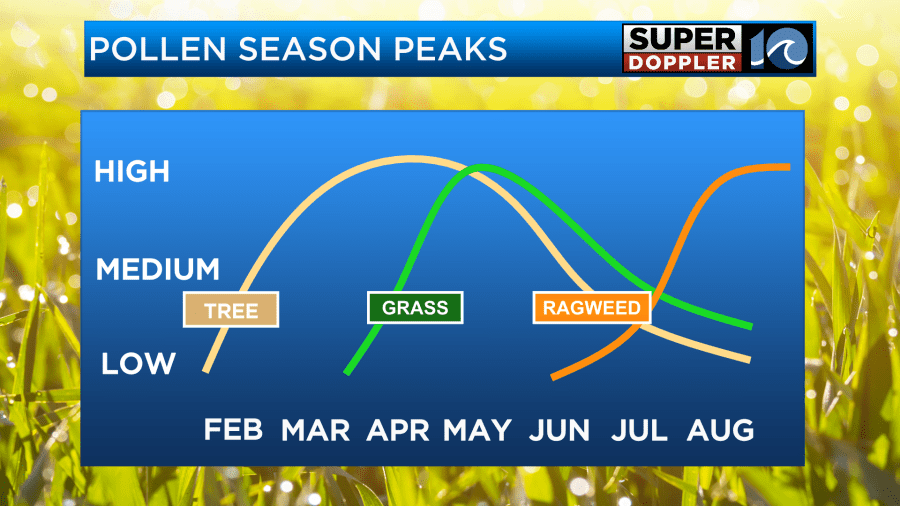HAMPTON ROADS, Va. (WAVY) — Springtime warmth is something most celebrate, except those who have seasonal allergies.
A flight around Hampton Roads in Chopper 10 shows that life is returning to some of our area trees. While not all are showing budding leaves, a few are. We spotted lots of white and a few bits of color showing up in our flight across Norfolk and Portsmouth.
It’s that bloom that is triggering the pollen that pesters many this time of the year.
Our typical pollen season begins in early March, with increased levels of pollen being noted towards the middle of the month. By the end of the month, pollen is in full swing — with tree and grass pollen becoming the primary problems.

Pollen levels can be impacted by the weekly weather — warm weather can cause the trees to bloom more. Wind, can carry pollen around — leading to increased levels and rain can impact the amount of pollen in the air.

So how can the weather impact pollen levels? During the dry seasons, trees can actually release more pollen. Because there’s less moisture in the air to weight down the pollen grains when the wind blows, they can travel farther and more easily.
While light rain showers can wash pollen away, lowering the overall level — those who suffer from grass and weed pollen should beware. When those are high, a rainstorm can cause drops to hit the ground and break up clumps of pollen into smaller particles. That can cause a sudden increase in allergy and allergic asthma symptoms during the rain shower.


























































